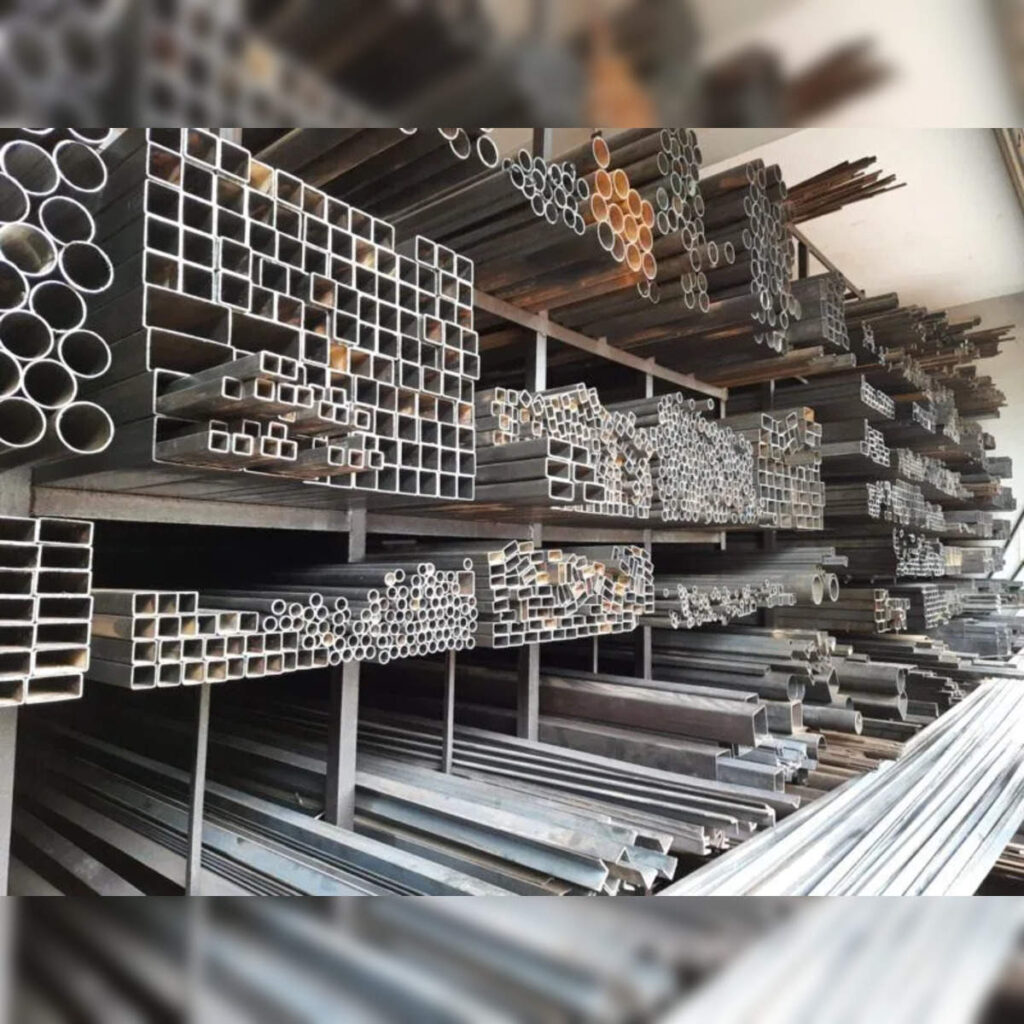NEW DELHI: The Directorate General of Trade Remedies (DGTR), under the Ministry of Commerce and Industry, has recommended a 12 per cent safeguard duty on certain steel products for 200 days to protect the domestic industry from what it describes as “serious injury” caused by a recent surge in such imports.
The recommendation, which requires approval from the Department of Revenue in the finance ministry, comes amid concerns of further increases in steel imports following the 25 per cent tariff on steel and aluminium imposed by the United States on March 12.
A safeguard duty is a temporary tariff imposed to shield a domestic industry from a sudden surge in imports.
The DGTR report emphasised the urgency of implementing the measure, warning that any delay could cause irreparable damage. “There is a necessity for immediate application of provisional safeguard measures,” it stated.
India’s imports of finished steel from countries such as China, South Korea, Vietnam, and Japan have been consistently high, according to the findings. The surge has been largely attributed to trade diversion caused by the US’ protective measures in place since 2018.
To counter this, the European Union (EU) imposed safeguard duties in 2018, followed by South Africa, Turkey, Vietnam, and Malaysia, all of which raised barriers against steel imports.
“To counter the trade diversion from the US, as well as any possible diversion from other countries that have put in place import barriers to counter trade diversion from the US into their countries, any protective measure by India shall be at a level adequate to ward off the trade diversion,” the DGTR report said.
If implemented, the safeguard duty could raise raw material costs for micro, small, and medium enterprises (MSMEs) and steel-dependent industries at a time when global steel prices are expected to soften.
The chairman of engineering exporter body EEPC India, Pankaj Chadha, called for additional safeguards for MSMEs and user industries, warning of potential price hikes and supply disruptions. He suggested a provision allowing MSMEs to procure steel at export parity prices to maintain global competitiveness.
Chadha also proposed a tariff rate quota (TRQ) system, permitting low-duty imports within set limits, with safeguard duties applicable beyond that quota. “Country-specific quotas, similar to the EU model, should be considered to prevent overdependence on a single source,” he added.
A report by Delhi-based think tank Global Trade Research Initiative (GTRI) raised concerns that the safeguard measure could encourage monopolistic practices, as domestic suppliers might restrict consumer choices and inflate prices. Additionally, 70-80 per cent of India’s steel imports stem from free trade agreements (FTAs) with Japan and South Korea, making the safeguard duty inconsistent with India’s trade liberalisation policies.
“The investigation used an inappropriate base year (Covid-affected period) to compare import levels, misrepresenting normal post-pandemic recovery as a sudden surge. The steel industry itself faces rising input costs, not necessarily losses due to increased imports. Profit margins remain healthy, with Ebitda (earnings before interest, taxes, depreciation, and amortisation) margins of 9-23 per cent,” it further said.
The safeguard investigation was launched last year following a petition from the Indian Steel Association (ISA), representing major players such as JSW Steel, SAIL, ArcelorMittal, and Jindal Steel. These companies argued that rising imports were causing serious harm to the Indian steel industry, including reduced profitability.
While large steel manufacturers welcomed the safeguard duty, user industries feared price hikes. Tata Steel CEO & MD, T V Narendran, expressed support for the move, stating: “We welcome the decision and appreciate the government’s support.”
ICRA Vice-President Ritabrata Ghosh said major flat steel producers, including JSW Steel, Tata Steel, SAIL, and ArcelorMittal Nippon Steel India (AM/NS India), would benefit the most from the safeguard duty.
“Long-focused steel producers, such as Jindal Steel and Power and Rashtriya Ispat Nigam Ltd (RINL), along with secondary producers, will be indirectly beneficiaries. Many flat steel producers had pushed volumes in the long segment as profits were impacted due to rising flat imports. With the safeguard duty in place, flat steel producers are unlikely to divert volumes to the long segment, which will lend support to prices,” Ghosh explained.
Flat steel products account for 90 per cent of India’s steel imports.
The recommended 12 per cent safeguard duty was lower than industry expectations. A major steel producer said that the industry had pushed for a 25 per cent duty, saying although the provisional duty is lower than expected, “it would still help the industry”.
Sehul Bhatt, director-research at Crisil Intelligence, said the duty would support local manufacturers in the first half of the financial year 2025-26, helping offset the impact of rising imports.
“Between April 2024 and January 2025, imports of flat steel products surged 22 per cent, putting pressure on domestic prices already trending at three-year lows. This announcement comes amid evolving trade dynamics, where some countries have imposed restrictions on imports of steel,” Bhatt added.
Source: Business Standard




 Parliamentary Panel Calls For Coordinated Approach To Reduce Debt To GDP Ratio
Parliamentary Panel Calls For Coordinated Approach To Reduce Debt To GDP Ratio 